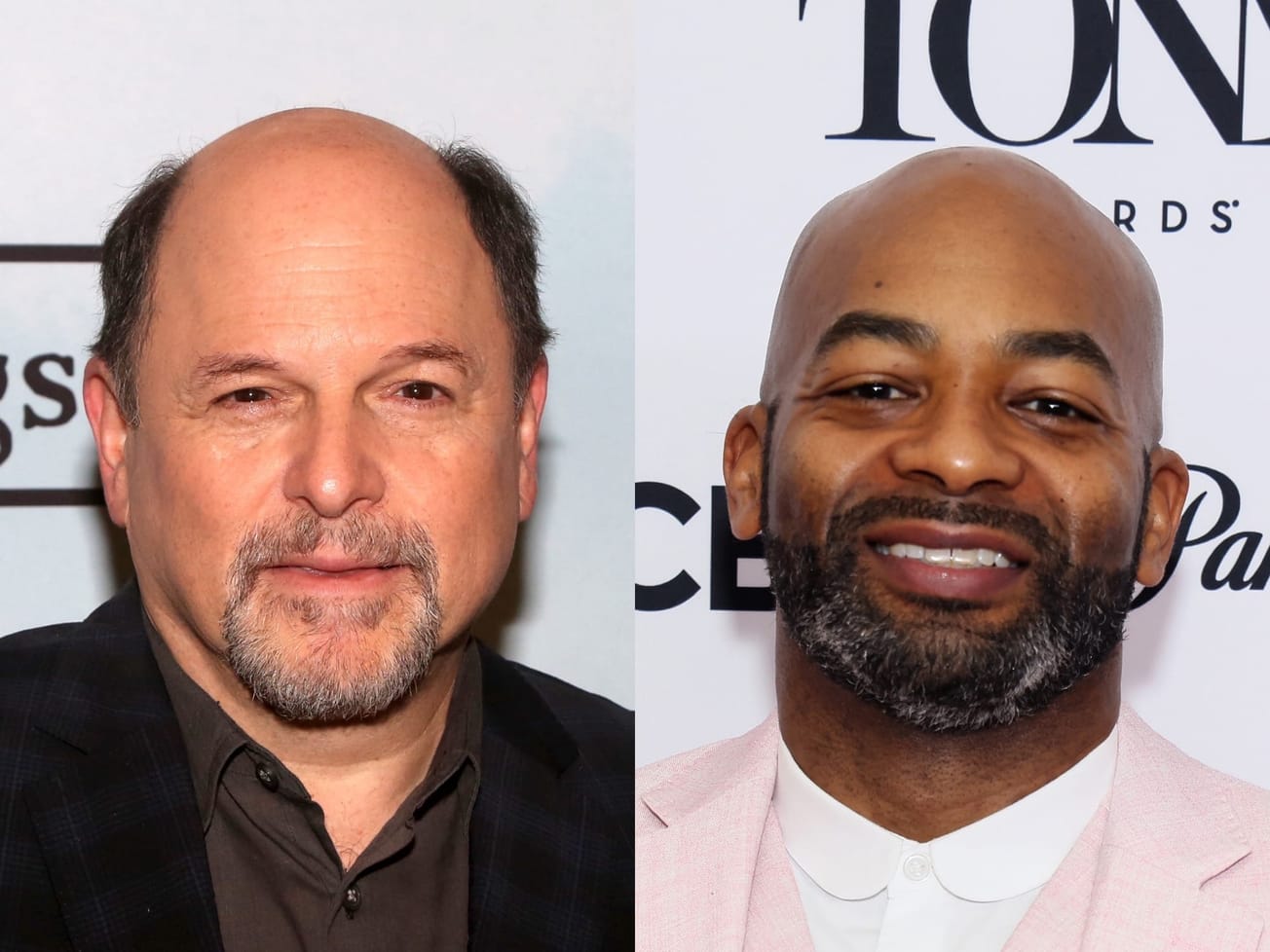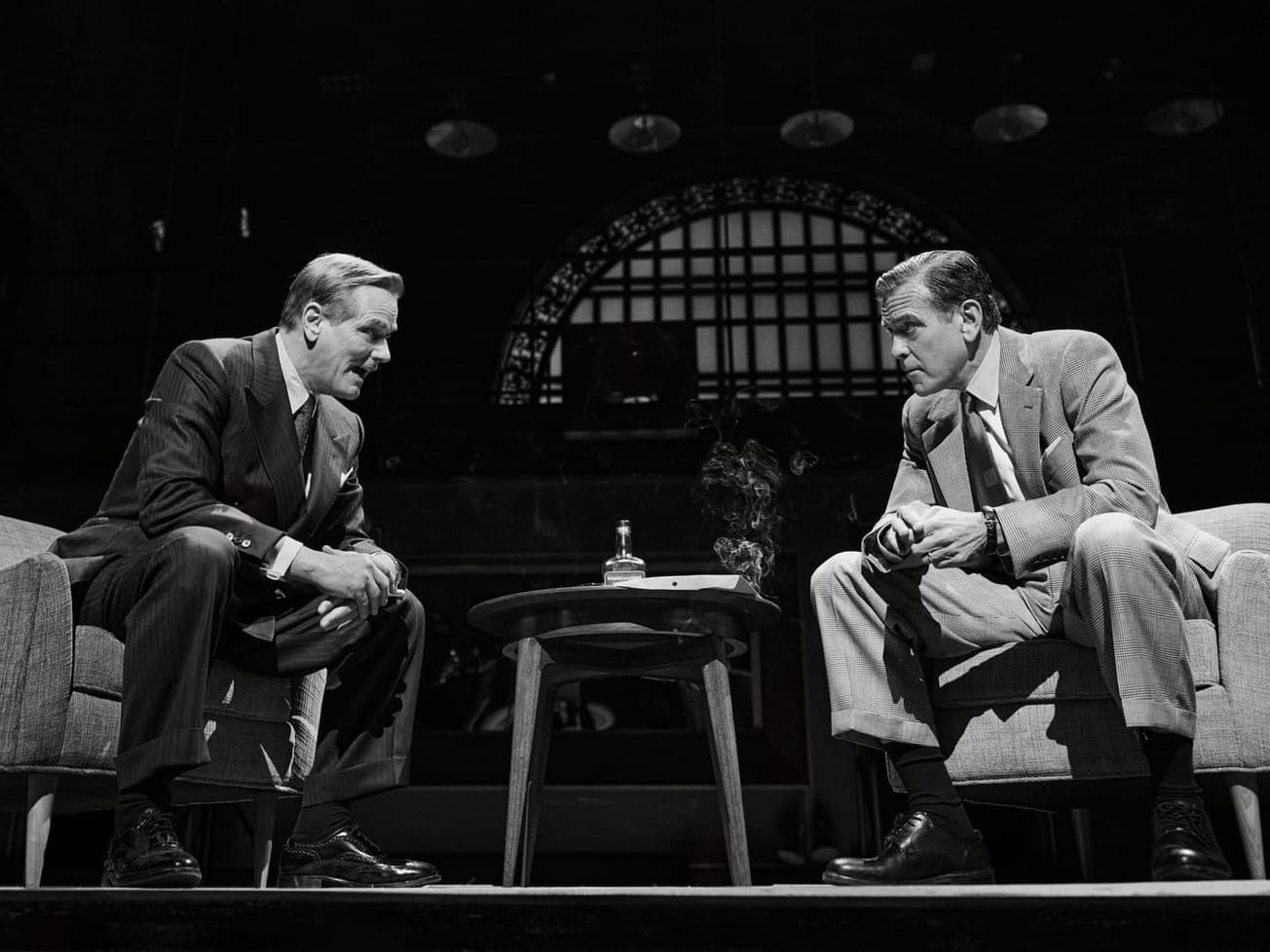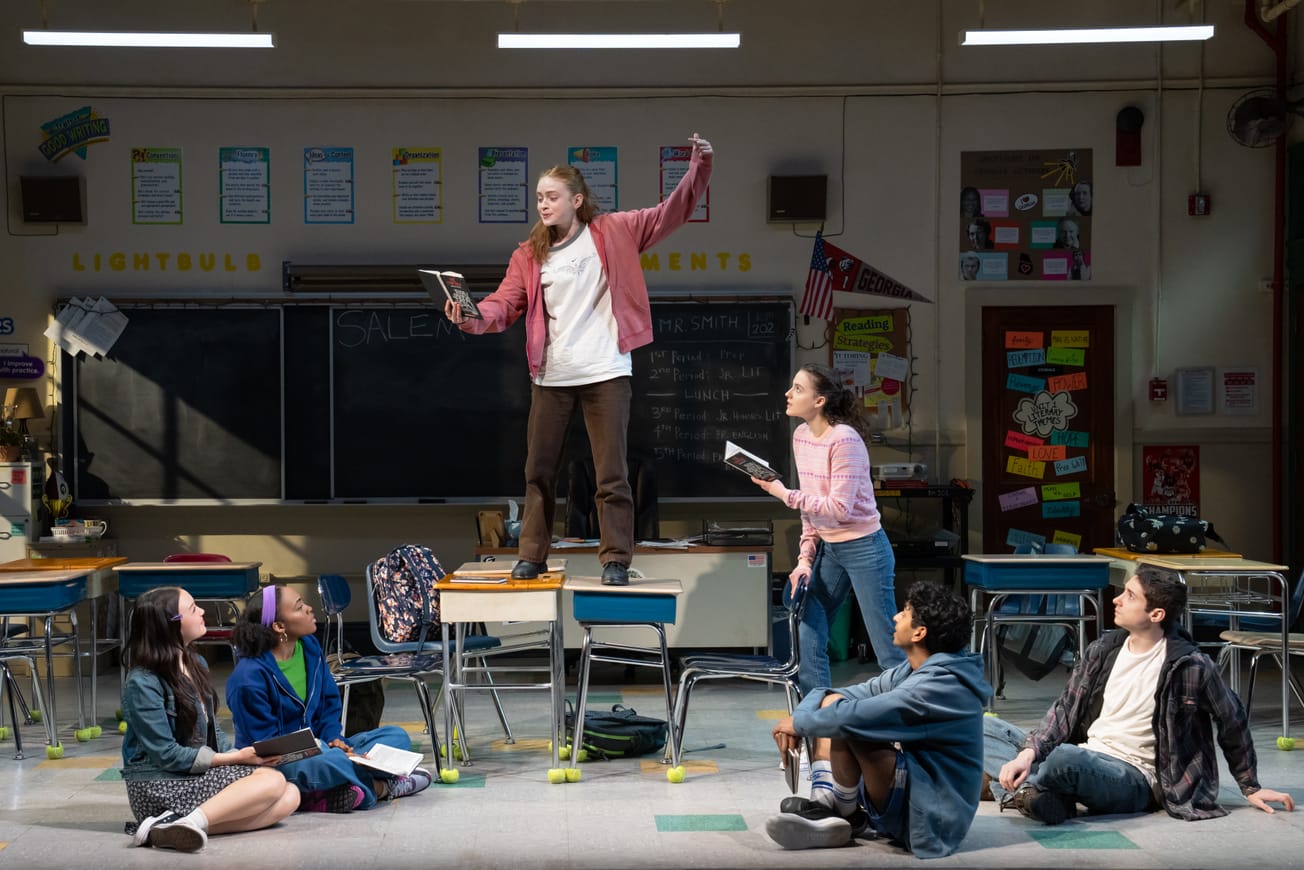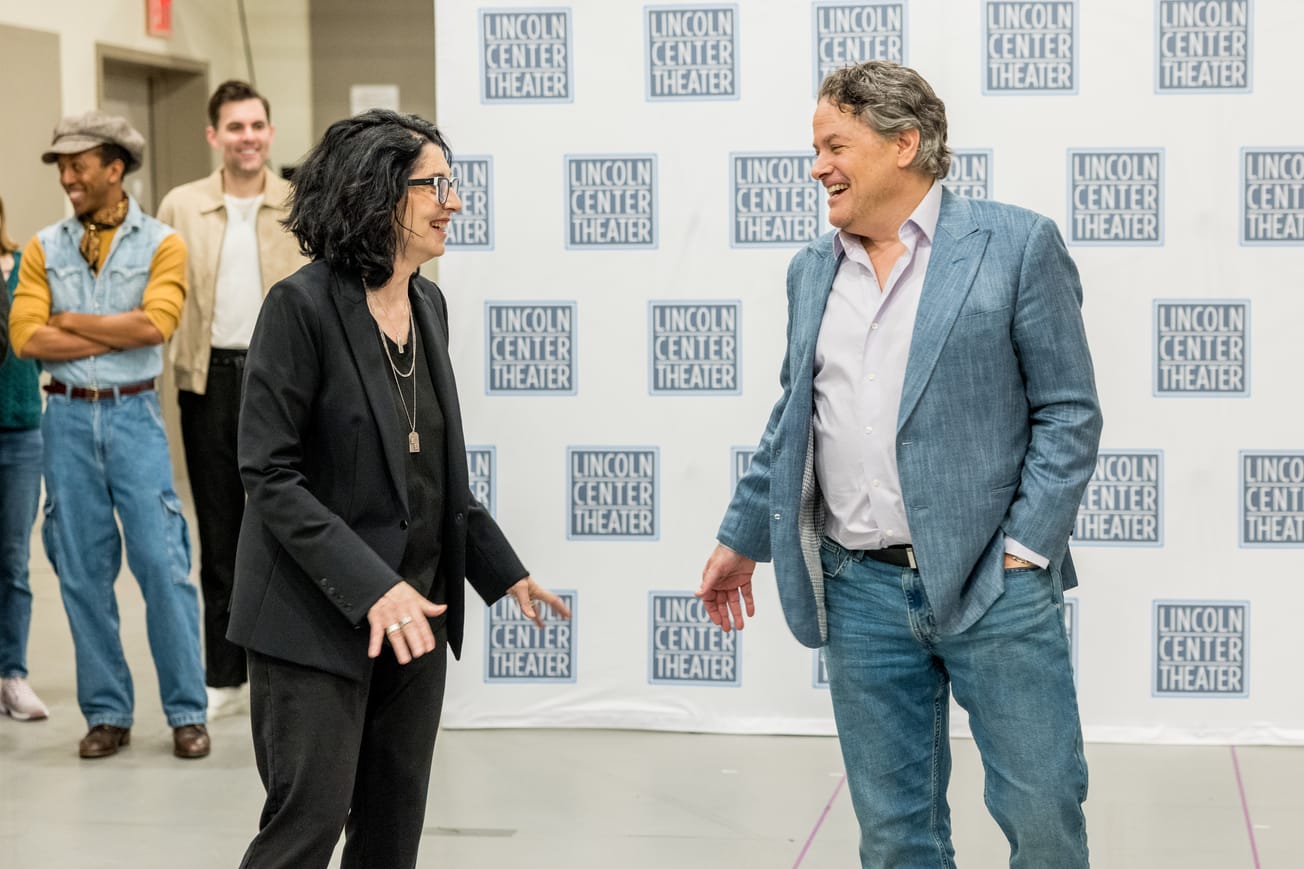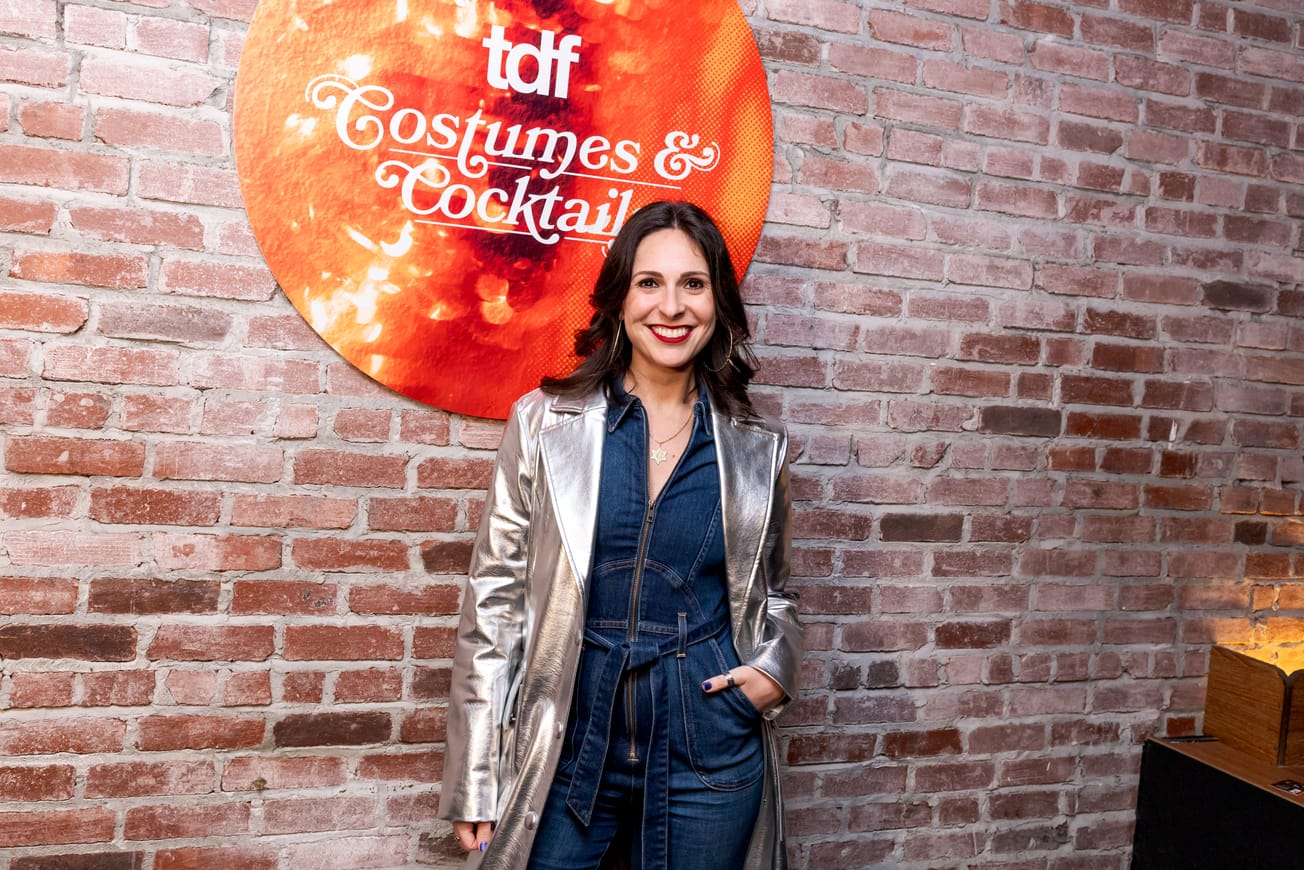On Sept. 12, Brooke Shields, the new president of Actors’ Equity Association (AEA), spoke at a National Press Club Headliners luncheon. The event included a one-hour interview led by National Press Club president and CNBC journalist Emily Wilkins. The lunch took place in Washington, D.C., where Shields spent time on Sept. 11 lobbying government leaders on Capitol Hill.
As Shields shared during her talk with Wilkins, her Sept. 11 meetings included advocacy for national arts funding and the Performing Artist Tax Parity Act (PATPA). “Yesterday was about getting more cosponsorship [for PATPA] and finding the right people to push that through,” Shields said, noting that the bipartisan bill already has 90 cosponsors but needs more to be enacted.
PATPA would reinstate the ability of arts workers to deduct essential work expenses from their taxes. Shields noted that many of these lawmakers “don’t think of [these expenses] in terms of tools to be able to do your craft. These are the tools you need and you’re still not guaranteed to get the job.” Shields listed a number of necessary expenses for arts workers — from voice lessons to dance classes to agent fees — that were previously eligible for deductions.
Shields noted that many of the senators she met with were under the false impression that arts funding goes to the wealthy stars of Hollywood. “A lot of people we were talking to yesterday had this impression that it’s all movie and film. [Actors’] Equity is theater,” she said. “When we talk about arts funding with Equity, we’re talking about putting that money into the fabric of all that makes communities and lives better.”
The new union president has been advocating for greater arts funding from the federal government since taking office in May. “We want more funding. It’s an oversight. It’s dangerous. It’s something that needs to be remedied. You cannot cut the arts,” Shields told Wilkins. “In one discussion, it was brought to my attention that what we were asking for was help for people to follow their dreams. And I said, that’s great and the touchy-feely part … but we really need to recognize the economic impact. Each time someone goes to see a live show, they’re also adding an average $39 back into the economy.”
AEA, along with 23 other unions, just released a policy agenda that called for increased arts funding from the federal government. The agenda also demanded stronger, enforceable protections for arts workers, a point that Shields reiterated, adding, “and there should be penalties if those protections are not met.”
Wilkins asked Shields about the current stoppage of development contracts. When AEA and the Broadway League could not come to an agreement for a new deal, the union stopped issuing new contracts for work on its Development Agreement as of June 19. “With regards to the Broadway League, we have very different philosophies,” Shields said. “We weren’t willing to budge. We’re in for the long haul. But I think when you have two separate philosophies of what is fair and what is not fair, that’s a hard argument. … We locked horns and we’re patient.”
When it comes to contracts, broadly speaking, Shields clarified her primary concern. “It’s always going to start with pay. That’s what we need,” she said in response to a question about contractual priorities asked by Broadway News. “Wages are always very important. There is safety. There are things like days off. There are things like having a stage manager have a second stage manager [for coverage]. Those are things that have gotten sort of lost.”
“There [are] so many different little elements to that that we are fighting for — days off and covers,” Shields continued. “It’s amazing how much when you’re in a production how many people are asked to do too much. It’s not fair.”
“It’s hard to pick a priority with all of these things,” she added. “I’m always going to start with pay.”
“The producers are not going to like me — the producers are usually the people with the most money in bigger cities,” Shields said. “To me, there [are] so many things that we get asked to do as performers when you’re exhausted, when you’re hurt. I’ve been on Broadway and on tours and there’s always more that you get asked [to do].”
Shields said that it’s these smaller instances that inspired her to run for AEA president in the first place. “I’ve spent so much time talking to stage managers and chorus members and musicians, all of those workers — we call them art workers … those are the people that have had my back,” Shields said. “I felt I would be remiss if I didn’t use a platform that I know I have to better their lives the way they have bettered mine.”



















































